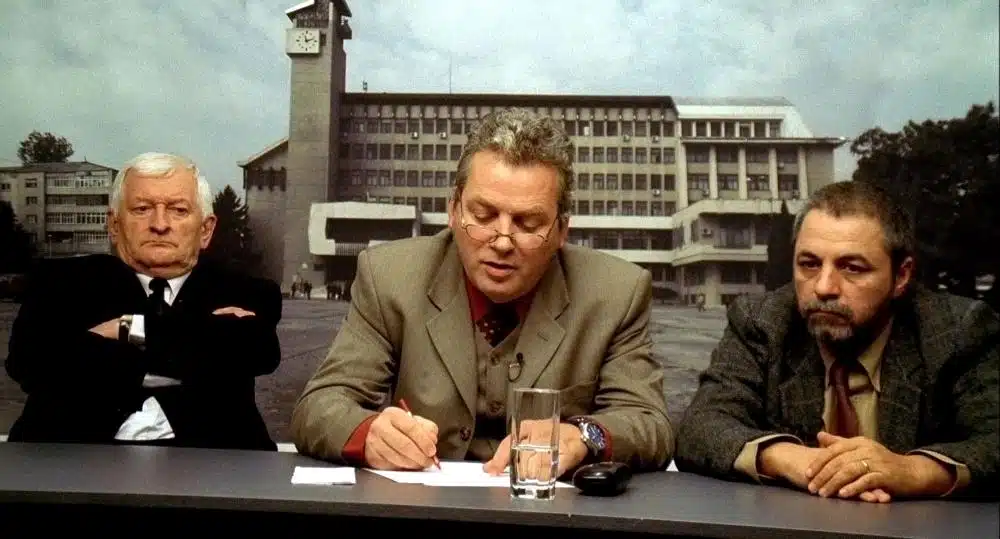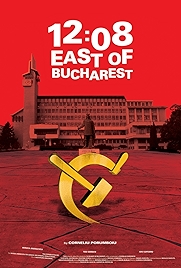A movie for every day of the year – a good one
25 December
Nicholae Ceauşescu executed, 1989
On this day in 1989, Nicolae Ceauşescu, general secretary of the Romanian Communist party since 1965, president of the country since 1967, was tried and convicted by a military tribunal, then taken out and shot by a firing squad, along with his wife Elena. Only the previous month, in November 1989, he had been re-elected for another five years as leader of the Romanian Communist Party. Ceauşescu had taken the opportunity to denounce the spread of anti-Communist rebellion throughout Eastern Europe. On 16 December in the city of Timişoara an impromptu demonstration against the eviction of a priest from his flat turned into something much less focused and angrier when students joined in. The police and security services made things worse by firing on the demonstrators and killing people. On 21 December, at a staged open rally, Ceauşescu addressed 100,000 people and attempted to blame the Timişoara demonstration as being the work of fascist agitators. The crowd started to boo him and a “Ti-mi-şoa-ra” chant started to go up. A riot began to break out, and because the state broadcaster was transmitting pictures live, most of the country saw it, and Ceauşescu’s bewildered reaction to events beyond his control. Ceauşescu and his wife panicked and retreated into the building. The streets filled with people, and the army, police and Securitate secret police started firing on them. By the following morning the crowds had grown, and Ceauşescu had introduced martial law. Then it was discovered that the minister of defence, Vasilae Milea, had died under suspicious circumstances. It was widely believed he’d been killed for failing to fire on protestors. At a stroke, almost the entire army went over to the revolution. Milea’s replacement, Victor Stanculescu, also tacitly joined the revolution and suggested to Ceauşescu that he and his wife should flee by helicopter. This they did, leaving Bucharest by the skin of their teeth at 12:08 on 22 December. Three days later, having been apprehended, arrested and tried in a 90 minute hearing, they were dead. It was the only violent overthrow to happen in the revolutionary wave that swept through the Warsaw Pact countries in 1989.
12:08 East of Bucharest (2006, dir: Corneliu Porumboiu)
Where were you when Ceauşescu fled? And when exactly did you join the movement that ensured his overthrow? This initially dour, eventually gripping drama by writer/director Corneliu Porumboiu sets out to prick the bubble of self-congratulation that so many Romanians have been inflating every since the former dictator was bundled so quickly off the world stage. The films builds slowly, and divides its action into two halves. In the first part we meet a sad gang of people, all of whom live in Vaslui, a nowhere town (Porumboiu’s home town in fact), who are gradually being assembled to take part in a live TV phone-in to celebrate 16 years since 22 December 1989 – revolution day. Their lives are drab, their town is poor, but the young people at least seem to be looking forward with some hope. In particular we meet Mr Manescu (Ion Sapdaru), an alcoholic history teacher who claims he was at the heart of the revolutionary action on that fateful day. In part two that claim is tested, increasingly uncomfortably, as Mr Manescu and fellow “experts” sit in a live studio and caller after caller starts ringing in to dispute Manescu’s claim – was he really out on the streets with the crowds or was he somewhere else entirely, on his own, drunk? The 12:08 of the title is particularly pertinent. It’s the time Ceauşescu’s escape helicopter took off, the moment when the country realised that the hated dictator had either fled, or was about to be caught. So if you took to the streets after that time, you weren’t quite the revolutionary spirit you now claim you were. In fact, the film asks at a wider level, was there a revolution in the country at large at all? Or did the lumpen mass of people simply go along with the change in the same way they had gone along with Ceauşescu and his equally hated wife? Revolutionary opportunism has rarely been analysed with such surgical precision and wit. Shot in the flat, blank style reminiscent of the Communist 1980s, this is a wise, uncomfortable and a surprisingly funny film, and a satire well worth seeking out.
Why Watch?
- A bone dry satire
- One of the great films out of Romania in recent years
- Winner of the best first feature at Cannes
- An intro to Porumboiu, writer/director of similarly brilliant Police, Adjective
12:08 East of Bucharest – at Amazon
I am an Amazon affiliate
© Steve Morrissey 2013

